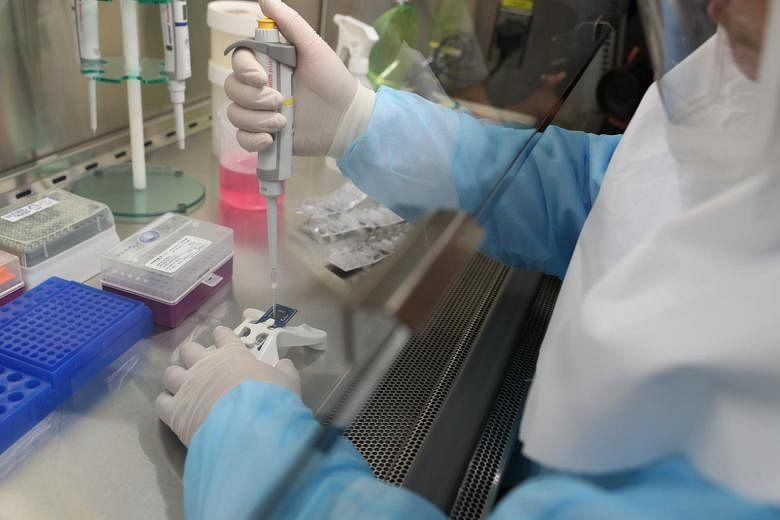SINGAPORE - The urgent search for a Covid-19 vaccine should not be seen as a competition, said British pharmaceutical giant GlaxoSmithKline (GSK).
In a press conference for global media outlets hosted online on Wednesday (June 10), the firm noted efforts by multiple players around the world to produce a vaccine amid the mounting death toll and economic disruptions caused by the coronavirus.
"I really think we should not look at the situation as a big competition," said head of research and development for GSK Vaccines Emmanuel Hanon.
"We know we will need several players to cover the medical needs. So it's a good thing there are multiple players with different technologies to try to find an effective vaccine."
There are currently more than 130 candidate vaccines being studied by research groups and pharmaceutical companies worldwide, the World Health Organisation (WHO) said in an update on the Covid-19 vaccine landscape earlier this month.
GSK explained that the efforts cut across the different approaches to vaccine creation.
But they all work to prevent deadly diseases by stimulating the human body's immune system during the infection, explained Dr Otavio Cintra, head of scientific affairs and public health at GSK Global Medical Affairs and GSK Vaccines.
"During an infection, the (foreign) microbes replicating in the body stimulates the immune system to produce a defence," he said.
This defence, which is made up of a complex immune network that includes cells and antibodies, helps the body get rid of the virus.
Once the human body fights a virus, it remembers, he said, adding: "So when we face it (the foreign pathogen) again, it will be easy to defend the body and avoid falling sick.
"A vaccine does the same, but without producing symptoms associated with the infection."
There are at least seven different types of vaccines, and scientists around the world are tapping them to produce one that can prevent a Covid-19 infection.
Traditional vaccines, such as inactivated virus vaccines and live attenuated vaccines, work by injecting whole but inactive viruses into patients to stimulate an immune reaction.
This is what is done for polio (inactivated polio vaccine) and chickenpox (a live, but weakened, virus vaccine).
There are also new types of vaccines being created with the help of technology.
For example, American biotechnology company Moderna is developing a messenger RNA (mRNA) vaccine, which involves injecting snippets of the viral genetic code so a patient's body mounts a protective response without being actually exposed to the whole virus.
This technology has not been used in any other vaccine.
Meanwhile, GSK is working with multiple international research groups and companies, such as French firm Sanofi, to leverage the British giant's expertise in developing vaccine adjuvant systems - which is used in some vaccines to help boost the human immune response.
GSK's collaboration with Sanofi, for example, is for a protein sub-unit vaccine.
This essentially refers to a vaccine that contains just a part of the virus, such as the spike proteins - the part of the virus that helps it latch on to a human host cell - instead of the whole virus.
The technology to develop this protein is contributed by Sanofi, with GSK producing the adjuvants.
The use of adjuvants could help to reduce the amount of vaccine protein required per dose, allowing more vaccine doses to be produced, which would mean protecting more people.
GSK said it plans to manufacture one billion doses of adjuvants in 2021, which can be used to support the development of multiple adjuvanted Covid-19 vaccine candidates.
GSK has 12 vaccine manufacturing facilities worldwide, including in Singapore.
The GSK plant in Tuas is the Republic's only vaccine manufacturing plant, and it produces conjugates, an important ingredient that the firm uses for its pneumococcal conjugate vaccines.
Asked if there are plans to ramp up adjuvant production worldwide, GSK Vaccines's head of Belgium operations Russell Thirsk said there are detailed plans to scale up production next year.
"Those plans are mainly going to be executed at our facilities in Canada and in Europe, where our current adjuvant manufacturing capabilities are set up.
"We continue to look at how to leverage the remainder of our manufacturing network for Covid response as demand and needs become clearer," he said.












